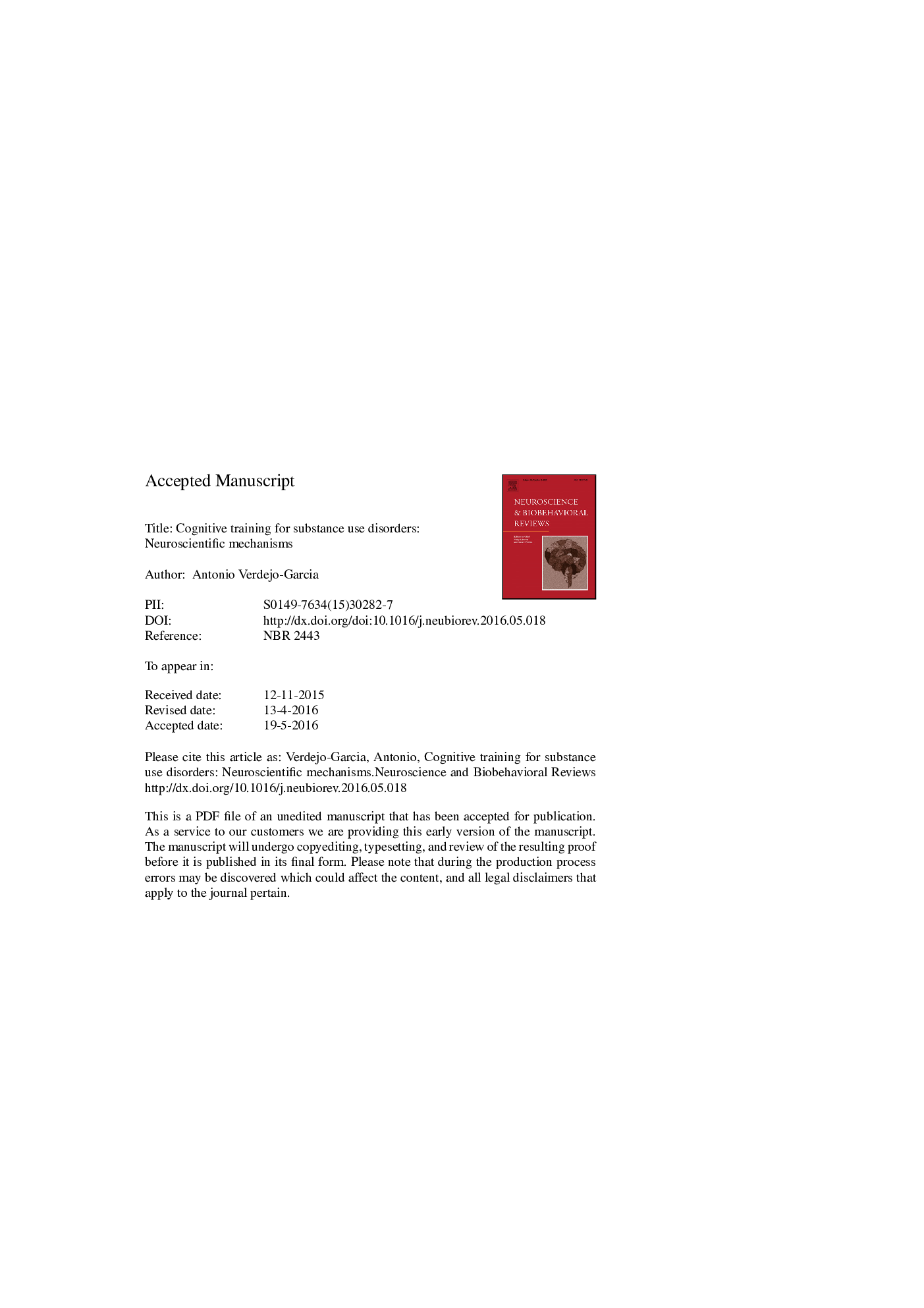| کد مقاله | کد نشریه | سال انتشار | مقاله انگلیسی | نسخه تمام متن |
|---|---|---|---|---|
| 7302811 | 1475302 | 2016 | 39 صفحه PDF | دانلود رایگان |
عنوان انگلیسی مقاله ISI
Cognitive training for substance use disorders: Neuroscientific mechanisms
ترجمه فارسی عنوان
آموزش شناختی برای اختلالات مصرف مواد: مکانیسم های علمی اعصاب
دانلود مقاله + سفارش ترجمه
دانلود مقاله ISI انگلیسی
رایگان برای ایرانیان
کلمات کلیدی
آموزش شناختی، اعتیاد، اهمیت، عملکرد اجرایی، تصویر برداری عصبی، استفاده از الکل و مواد مخدر،
موضوعات مرتبط
علوم زیستی و بیوفناوری
علم عصب شناسی
علوم اعصاب رفتاری
چکیده انگلیسی
This article reviews the emerging research on cognitive training for substance use disorders, and discusses the neuroscientific mechanisms that underlie cognitive training effects in addiction. Four cognitive training interventions are reviewed: cognitive bias modification (CBM), response inhibition, working memory (including specific and multi-component approaches), and goal-directed interventions. Based on the knowledge of the mechanisms involved in these trainings they can be clustered in two classes: (1) CBM and response inhibition, which have shown to operate via reorientation of stimulus-action approach biases and rewiring of the medial prefrontal cortex and the amygdala; (2) Working memory and goal-oriented interventions, which have been associated with improvements in stimulus-outcome representations e.g. increased future-based delay-discounting and decision-making, and rewiring of the dorsolateral and ventrolateral prefrontal cortices. The cognitive trainings are generally efficacious in improving the trained cognitive processes. The transfer to clinical outcomes is notable and theoretically coherent, although evidence is still preliminary. Replication studies and randomised controlled trials that incorporate neuroscience-based mechanistic accounts are needed to gauge the significance of this line of research.
ناشر
Database: Elsevier - ScienceDirect (ساینس دایرکت)
Journal: Neuroscience & Biobehavioral Reviews - Volume 68, September 2016, Pages 270-281
Journal: Neuroscience & Biobehavioral Reviews - Volume 68, September 2016, Pages 270-281
نویسندگان
Antonio Verdejo-Garcia,
